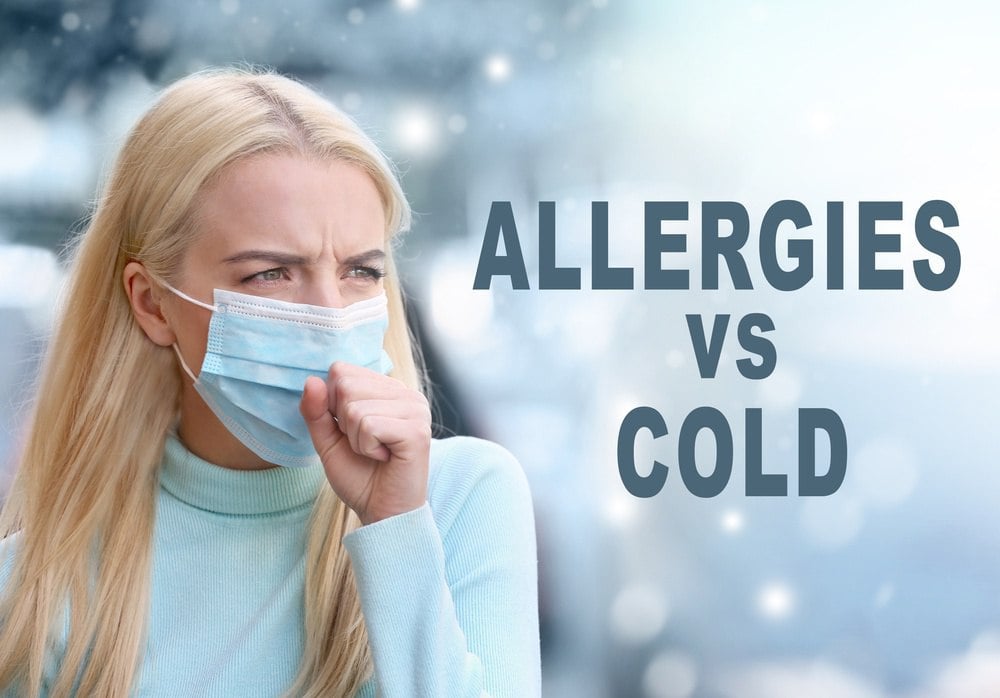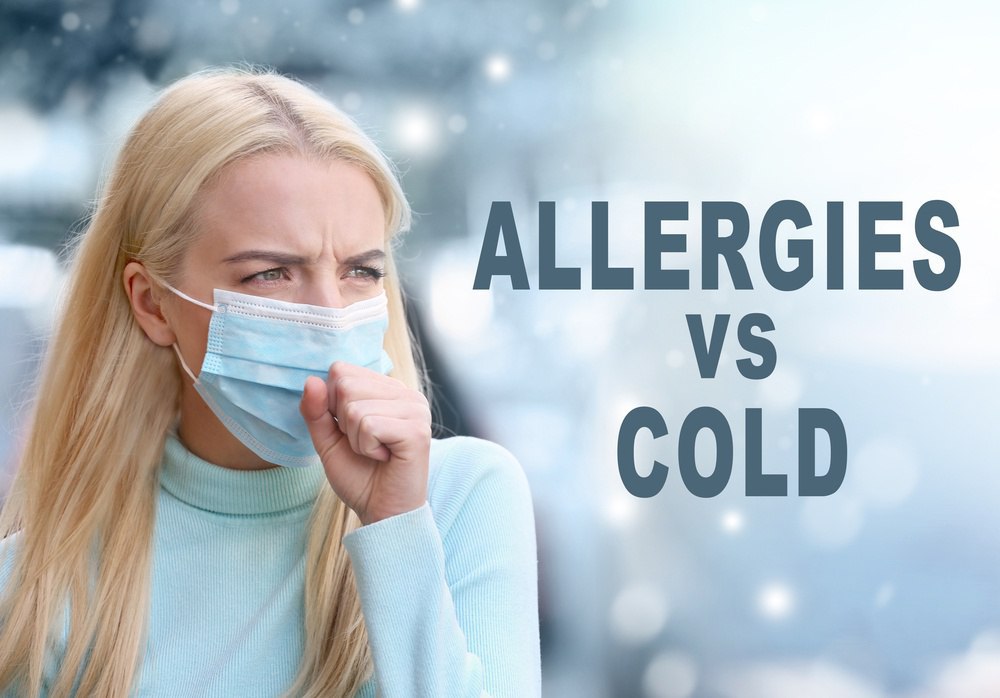Allergies vs Cold or Flu: Differences and Symptoms
February 16th, 2018 | 4 min. read


It’s that time of year again. The time of year when Houston temperatures are fluctuating like crazy and germs, viruses, and pollen simultaneously saturate the air. It can be enough to make your head spin – or at least feel like it is spinning.
The problem is because there always seems to be some sort of cold or flu going around, it can be difficult to tell whether your symptoms are from allergies, cold, or the flu. And, this year, in particular, flu is especially prevalent not only here in Houston, but is widespread throughout Texas and the entire U.S.
This guide will help you learn a little more about each so that you can know the best way to treat your symptoms and when it might be time to call or visit us here at Houston ENT & Allergy Services.
Similarities Between Allergies, Colds, and Flu
Before we discuss the differences, it’s a good idea to look at the many things they have in common. That typically begins and ends with the symptoms. These symptoms include a wide range of misery, such as:
-
Sniffles
-
Sneezing
-
Sore Throats
The reason you experience all these symptoms with all three maladies is that each one affects the respiratory system. However, if you treat the symptoms with the wrong type of medication, the National Institutes of Health warns, you might get little, if any relief.
In worst case scenarios, you could make the symptoms worse. This is why it’s so important to know which condition you’re suffering from – so you can take the right treatment for your condition and get relief. It’s also essential to know whether your symptoms affect you and you alone —or if you are contagious and could potentially spread your condition to others.
Differences Between Allergies, Cold, and Flu
While respiratory symptoms are a common link between the three conditions, there are other symptoms that can help you differentiate between them. The better you understand the differences between allergies and the flu and cold symptoms, as well as your overall symptoms, the more accurately you will be able to pinpoint your condition.
Accurate diagnosis, allows you to take the right medications and/or seek the most appropriate medical care if needed. The primary differences between the three are this: allergies tend to be long lasting – well beyond a week and sometimes throughout the year with peaks when certain allergens are more pervasive than other seasons. Colds and flu have many of the same symptoms with flu symptoms coming on more suddenly and severely.
Allergy Symptoms
In the great state of Texas, you can experience allergy symptoms at any time of the year. According to the University of Texas at Austin University Health Services, allergies usually cause the most intense symptoms in January and throughout the spring. Timing can also be an important clue about which of the big three you’re suffering from.
Cold, flu and allergy symptoms of allergies all can vary from person to person. Allergy symptoms, in particular, can vary depending on the type of allergies you have. Some of the most common allergy symptoms you may experience are the following:
-
Dry Cough (typically producing little, if any, mucus)
-
Ear Congestion
-
Ear Popping
-
Itchy, Burning, Watery, and/or Swollen Eyes
-
Runny and/or Itchy Nose
-
Sinus Drainage
-
Sinus Pressure
-
Sneezing
-
Sore Throat (often with itchiness or tickling feeling)
-
Stuffiness
-
Wheezing
With allergies, you will not typically have a fever, fatigue, body aches, chills, nausea, vomiting, or diarrhea though you may sometimes experience headaches brought on by sinus pressure.
Cold Symptoms
Colds are no fun. Plus, they are fairly common with the Centers of Disease Control and Prevention (CDC) reporting the average adult suffers from two to three colds each year and children have even more.
Fortunately, they are often short-lived with symptoms rarely lingering beyond two weeks. You often will not experience the itchy watery eyes associated with allergies when suffering from a cold according to Wexner Medical Center at The Ohio State University, though it is certainly a possibility. The following symptoms, however, are far more likely to appear when you have a cold:
-
Chills
-
Coughing
-
Ear Congestion
-
Fatigue
-
Fever (though typically mild)
-
Headaches
-
Runny Noses
-
Sinus Drainage
-
Sneezing
-
Sore Throats
People who have compromised immune system along with certain pre-existing medical conditions may develop more serious illnesses in addition to colds, such as, bronchitis or pneumonia.
While the common cold shares many symptoms with flu, the onset of flu is typically far more abrupt and the symptoms are often more brutal. You can visit your doctor for tests and medications if your cold symptoms are interfering with your ability to function at home or in the workplace.
Flu Symptoms
The CDC describes influenza (the technical name for flu) as “a contagious respiratory illness caused by flu virus.” It reports that symptoms of the flu can last several days, though generally less than two weeks, range in severity from mild to severe, and in some cases may lead to death. The symptoms associated with the flu are often more severe than those experienced with the common cold and may include the following:
-
Body Aches
-
Chills
-
Coughing (which can become severe)
-
Fatigue
-
Fever
-
Headaches
-
Muscle Aches
-
Runny Noses
-
Sore Throat
-
Stuffy Noses
Children suffering from the flu may also experience diarrhea and vomiting with the flu. There are vaccinations available to prevent many common flu strains and most doctors recommend that everyone who can take the vaccination does so. It is especially encouraged for young children, adults over the age of 65, people with chronic illnesses, anyone taking immune-suppressing medications, and women who are pregnant.
Some people who have the flu will also develop complications, such as ear infections or sinus infections on the mild side. More severe complications commonly associated with flu include pneumonia, organ failure, inflammation of the heart, sepsis, and more, including death.
It can also worsen existing chronic illnesses, which is why vaccinating against the flu and taking other precautions to avoid the illness are so important for everyone, and especially among vulnerable populations.
Preventing and Responding to Allergies vs Cold or Flu
Prevention, of course, is the best cure for allergies, cold, and flu. The best way to prevent allergy symptoms is to avoid the things you’re allergic to whenever possible. If that isn’t possible, consult your physician about the possibility of allergy prescriptions you can take year-round or when your allergy symptoms are at their worst. Or, you can consider getting antigen therapy for allergies.
For flu and virus, the number one thing you can do is wash your hands. Wash them well and wash them often. Also, avoid being around people who are sick and may transmit the cold or flu to you. If you do develop the flu, stay home so that you do not spread it to others.
Staying home and taking care of yourself is ideal if you have one of these conditions. However, if your symptoms last more than 10 days or if they seem unusual or severe, you should come see us here at Houston ENT & Allergy Services. If you are among the high risk-group mentioned above for flu, you should contact us as soon as you begin to experience symptoms.
Patricia A Leonard, MD is Board Certified in Allergy and Immunology, and has been practicing allergy treatments in the Houston community for 10 years.
Topics:
